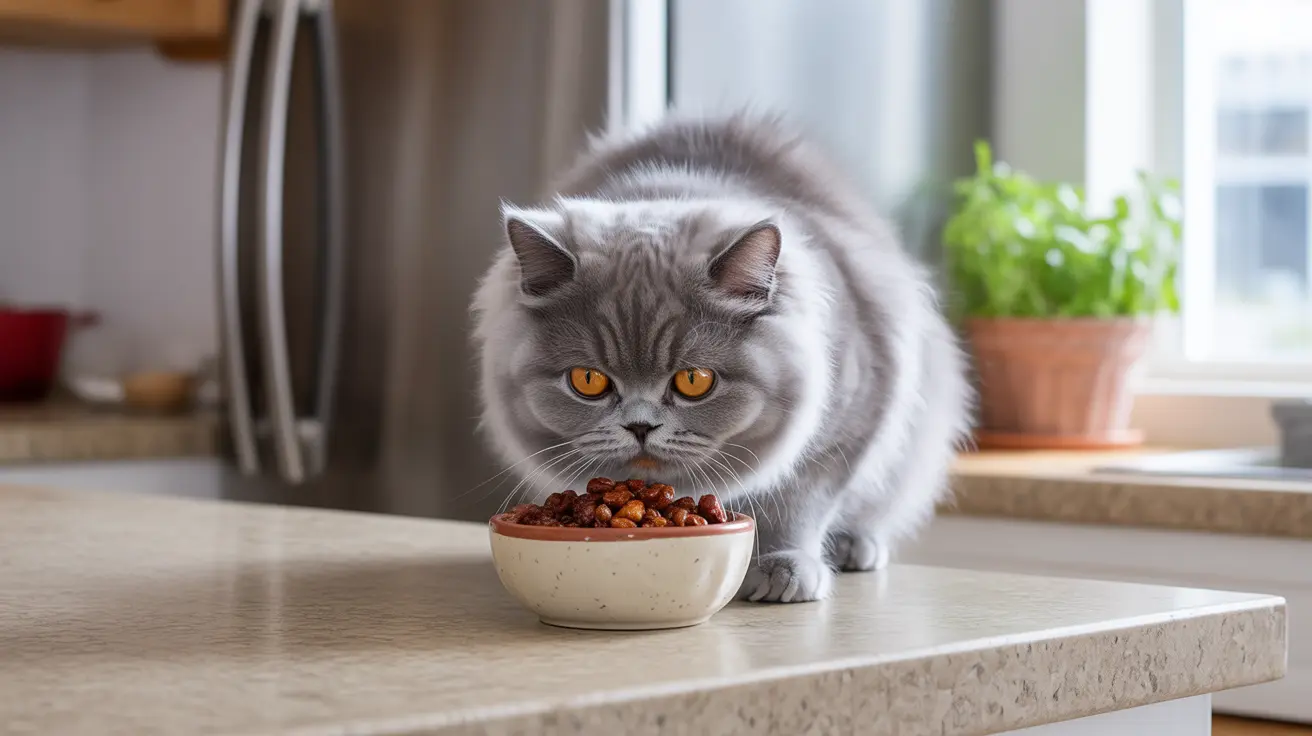Safety of Craisins for Cats
Craisins are not toxic to cats, unlike raisins which can cause severe kidney damage. However, this doesn't mean they should become a regular part of your cat's diet. These dried cranberries typically contain added sugars and oils, which aren't ideal for feline consumption.
The primary concern isn't toxicity but rather the potential for digestive issues and long-term health impacts. Cats are obligate carnivores, meaning their digestive systems are designed specifically for processing meat, not fruits or sugary treats.
Nutritional Impact on Cats
While cranberries do contain some beneficial nutrients like vitamins C and E, cats don't require these from plant sources. Their nutritional needs are met through properly formulated cat food that provides essential animal-based proteins and fats.
The added sugar in craisins is particularly problematic because:
- Cats lack sweet taste receptors
- They don't efficiently process carbohydrates
- Excess sugar can contribute to obesity and diabetes
- Regular consumption may lead to dental issues
Potential Benefits and Risks
Benefits
The only potential benefit of cranberries for cats relates to urinary health. Some studies suggest that cranberry compounds might help prevent urinary tract infections, which is why you'll sometimes find cranberry extract in commercial cat foods.
Risks
The risks of feeding craisins to cats include:
- Digestive upset and diarrhea
- Weight gain from added sugars
- Potential dental problems
- Possible disruption of regular eating habits
Safe Feeding Guidelines
If you decide to offer craisins to your cat, follow these important guidelines:
- Limit portions to one or two pieces occasionally
- Never make them a regular treat
- Follow the 90/10 rule for treats (no more than 10% of daily calories)
- Monitor for any adverse reactions
- Choose plain dried cranberries over sweetened varieties when possible
Alternative Treat Options
Instead of craisins, consider these cat-appropriate treats:
- Commercial cat treats formulated for felines
- Small pieces of cooked, plain meat
- Freeze-dried meat treats
- Cat grass for those seeking vegetation
Frequently Asked Questions
Can cats safely eat craisins or dried cranberries as a treat?
Yes, cats can safely eat craisins in very small amounts occasionally, but they shouldn't be a regular treat due to their high sugar content and minimal nutritional value for cats.
What are the risks of feeding my cat craisins regularly?
Regular consumption of craisins can lead to digestive issues, weight gain, dental problems, and potentially contribute to diabetes due to their high sugar content.
How do craisins differ from raisins in terms of toxicity for cats?
Craisins (dried cranberries) are non-toxic to cats, while raisins (dried grapes) are highly toxic and can cause severe kidney damage or failure in cats.
Can cranberries or craisins help with my cat's urinary health?
While cranberries may have some urinary health benefits, there's limited scientific evidence supporting their effectiveness in cats. Consult your veterinarian for proper urinary health treatments.
What symptoms should I watch for if my cat eats craisins or cranberry products?
Monitor for signs of digestive upset, including vomiting, diarrhea, decreased appetite, or changes in behavior. If these occur, discontinue feeding craisins and consult your veterinarian.
Remember, while craisins aren't toxic to cats, they're far from an ideal treat. Focus on providing your cat with a balanced, meat-based diet and appropriate feline-specific treats for optimal health and happiness.






